- Home
- Micheal Maxwell
Cole Dust Cole Page 23
Cole Dust Cole Read online
Page 23
The only way to the highway heading north is down Main Street, so we had to drive by the livery stable. Alma gasped and threw her hand over her mouth at the sight of Tom Wilkerson dangling from the end of the rope. There was no one else in sight.
As we drove past him I heard Effie’s voice from the back seat. “Papa, that’s the man that burned the house.”
I did not answer.
In my side mirror Tom Wilkerson was the last thing I saw as I drove out of Orvin.
George C. Sage
April 16, 1934
Cole folded the pages back and tucked them into the binding and closed the notebook. It was murder, premeditated, in the first degree. However, the fact that it seemed justified, and the knowledge that Wilkerson would never be punished for his crime, all seemed to make murder the wrong word.
April 18, 1934
We are settled at last. We found an old school house that was for rent. The big room has a big nickel plated stove in the corner that heats the whole place. It’s a good thing because it is a whole lot colder here than back home. There are two offices that we are going to use for bedrooms. The girls got one. Alma, the baby, and I took the other. The washroom has floor to ceiling tile and someone has hooked up a showerhead over one of the stalls. It is a bit cramped but will work fine. In the corner is a wood burning water heater. It will work good to do laundry in, too. The landlord wanted thirty dollars a month. I was able to get him down to twenty by paying for the next three months in advance.
The money from Uncle Joseph has not arrived. I have signed the papers but the monies have not been sent. The bank manager assures me that this kind of thing happens from time to time and that it should be here soon. It better, I’m down to my last sawbuck.
April 25, 1934
I went to the bank again today, like I have every day, to check on the money from Uncle Joseph. When I arrived there was a mob of people outside yelling and banging on the doors and windows of the bank. It was closed. On the door was a typed note, the gist of it was that the bank was out of money and would be closed until further notice. The folks outside were there to get their money out, but the bank was bust. If the money did arrive from Uncle Joseph it was lost.
One fellow in bib overalls was crying. A lady dropped to her knees and was wailing like the end of the world had come. I guess it has. The crowd seemed to grow larger by the minute. A man stood with his back to the doors and started saying something about the money being stolen by the bankers, and it was probably still in the vault. He got the crowd pretty riled up.
I didn’t see who threw it, but a brick went through the front window. People started pushing and shouting and a little redheaded guy broke out the rest of the glass with the heel of his shoe. Then he hopped through the window and unlocked the front doors. People flooded into the bank. More windows broke. You could hear furniture being smashed and somebody threw papers out the front window. The wind caught them and blew them everywhere.
All of a sudden, from both ends of the street, police cars pulled up and half a dozen cops with billy clubs jumped from their cars. Most of the folks started to leave but a few hot heads were blaming the police for letting the “real bank robbers” get away. Somebody threw a punch and the cops started busting heads. I high tailed it back to the house. I have an interview in the morning and don’t want to show up with bruises.
We ate the last of the flour and lard for dinner. Alma made biscuits and gravy with a little bacon grease she saved back. Tasted good, but there was only enough for one biscuit apiece.
April 26, 1934
I met Lloyd at the Ford garage and he took me around front to meet the boss. Alma spot-cleaned and pressed my suit as best she could. My shirt and collar were stiff with potato starch. I looked “almost presentable” according to Lloyd.
The boss was a guy about my age. The first thing he said when he met me was “Great, another Okie.” I wasn’t sure how to take the remark so I let it slide. The interview was in his office and only lasted a few minutes. For a talk that was supposed to be about me I did very little talking.
When I told him that I sold Pontiacs back home, it pretty much sealed the deal. He said he had some firm rules; no drinking on the job, cover your shift, and no Sharking. That one he had to explain, it means stealing sales from another guy. The last rule was make the sale.
I asked him how the pay worked. I must have looked needy because he asked me if I needed money. I told him about the bank. He said he was his own bank.
“Look, this isn’t a charity house, but I seem to have got the shitty end of the stick here. Tell you what. I need two cars taken up to Denver to switch with a dealer up there. Pays two-fifty going and I’ll tell the Denver guy you get five. Fair enough?”
“Sounds real fair to me,” I said. “When do I leave?”
“Right now,” he said.
I got home around nine o’clock. It started to snow and a bitter wind was blowing. Alma and the kids were all sitting around the stove wrapped in blankets.
“Where you been?” Alma growled.
I held up the seven dollars.
“You buy any groceries?” She snapped, “Everything will be closed now.”
I looked at Paula and smiled. “Are you hungry sweetie?”
“Somethin’ awful.” She smiled. “But I can wait ‘til morning.”
I said I would go see what I could find and went back out. Everything in town was shut up tight. Coming back up the road to the school house I saw some coops out behind a house. I parked the car, got a gunny sack out of the trunk and walked back to see what I could find. The coops were full of big fat pigeons.
Quiet as I could I reached into the cages and grabbed the birds. One after another I snapped their necks and shoved them in the sack. When I had about a dozen, I high tailed it back to the schoolhouse.
An hour later we were sitting down to a fried pigeon feast. We ate and the kids sang songs. We all went to bed with bellies full of the fat birds. When we finished, I burned the bones along with the feathers and guts in the stove. Tomorrow we’ll go shopping.
There was a pounding on the front door. Cole got up and found Ernie pacing back and forth on the porch.
Seeing Cole, Ernie threw his arms in the air and shouted, “I did it, by God, Cole, I did it!”
“Good for you!” Cole smiled. “What did you do?”
“I quit!”
“You quit?”
“Yeah, the sewer plant! I went in this morning and quit. Told them that life was too damn short and I was going to open my own “samwich” shop. I did it!” As he spoke, Ernie continued to pace back and forth on the porch. Like a prizefighter who just scored a knock out, the adrenaline was pumping and he was fired up. “I looked at a building, too. Get your shoes, I want to show it to you. Come on, somebody might rent it!”
“OK, hold on.” Cole held his hands up, palms out, “This is kind of quick isn’t it?”
“Strike while the iron’s hot, you know, a bird in the hand.”
Cole wasn’t at all sure of what Ernie meant by his mixed metaphor, but he obediently went in the house and grabbed his tennis shoes and came back out.
“Come on, I’ll drive,” Ernie called over his shoulder as he made his way to his truck.
“Right behind you Ern’, right behind you.” Cole moved to the pickup, still barefoot.
As they turned onto the road to town Ernie finally took a breath and Cole had a chance to ask a question. “So this spot you found, what was it before?”
“A doughnut shop. Guy made god-awful doughnuts, greasy as hell, and he went broke. I tell ya, Cole, it’s perfect. He left all his stuff behind, whole damn kitchen, counters, tables and chairs too. He just lit out one night.”
“So where is it?”
“You’ll see. Next to the Video King on one side and that package mailing place on the other.” Ernie jerked the wheel back as the tires hit the gravel on the side of the road. “I know, keep my eyes on the road.”
�
��What’s the rent?”
“Don’t know. It’s perfect. I can see the big ‘frigerators through the window. I bet there is all kinds of shit I need once you get inside. Can you believe?”
“Almost too good to be true,” Cole replied. “The rent is an important factor in this, you know.”
“The hell you say. How much is too much?”
“I have no idea. It depends on what other properties are renting for. How long has it been empty?”
“Year, maybe two? I don’t go around that area much.”
“Ding, ding, ding.” Cole held his hand up.
“What’s that about?”
“Those are warning bells. Why don’t you go to that area?”
“I rent at Blockbuster, better selection.”
“That the only reason?”
“I guess. I worked on three different sandwiches last night.” Ernie slapped a small ice chest on the seat between them. “Try one.”
Cole opened the chest and looked down at the three neatly wrapped sandwiches. Ernie obviously took great pains to get the plastic wrap just right. Cole took the one in the middle because the bread was a deep chocolate brown.
“Good choice!” Ernie nearly shouted. “My Reuben! I made the bread myself.”
Cole unwrapped the end of the sandwich and took a bite. “Wow. That’s good. What’s the sauce?”
“If I told ya, I’d have to kill ya.” Ernie laughed, but didn’t offer any insights.
As they drove into town Cole ate in silence. Ernie kept glancing at him, looking for signs of approval. Cole would just smile and keep eating.
“Now try one of the others,” Ernie requested, as Cole reached the half way point in the Reuben.
Cole obediently pulled the plastic wrap back over the Reuben and reached for another sandwich. The second choice was roast chicken and avocado. By the time Ernie parked the car in front of the Video King, Cole sampled all three sandwiches, and was hard pressed to say which he liked best.
As they got out of the truck, Cole smiled at Ernie and said, “You are going to have a brilliant future as a sandwich maker my friend, those were great!”
“The hell you say,” Ernie said beaming with the encouragement. “Here it is!”
Cole pressed his forehead against the front glass of the building and cupped his hands around his eyes. Inside the space everything sat like the owner just went home for the night. The chairs were neatly stacked atop the tables, the register sat with the drawer open and everything was neat and tidy behind the counter. The only thing that seemed out of sync with the rest of the little shop’s image was the pile of mail on the floor below the slot in the door.
“So what do you think?” Ernie pressed.
Cole turned and looked up and down the small shopping center. It was like any shopping center in any town in the USA. Video store, dry cleaner, mail box shop, a beauty salon, Chinese takeout, pool supply - hot tub - fireplace insert –patio furniture - seasonal store, and a locally owned supermarket as the anchor. Cole looked out at the street that bisected the town, high school at one end and the downtown area at the other. It seemed like a good location.
“Well Ernie,” Cole began, “looks pretty good.”
“Told ya,” Ernie interrupted.
“How many sandwich shops are there in town?” Cole continued.
“One franchise place. Not enough meat, too expensive and kids run it.”
“Diners that serve lunch?”
“Three or four, I guess.”
“McDonald’s? Burger King?”
“Yeah. So?” Ernie seemed puzzled at the questions.
“Your competition. This is not a big city. Only a certain number of people are going to buy lunch. Off the top of my head I count seven options for sandwiches. Not counting Mexican places and the Chinese place over there.” Cole pointed across the shopping center. “The pie is cut into a lot of pieces. Why are they going to come to you?”
“I’m gonna have the best “samwichs” in the whole damn county.”
“Right answer!” Cole smiled. “So next step is to call the landlord, huh?”
“I guess so.” Ernie seemed to have slowed down.
Cole pressed against the window again. “Cool floor. Would you have any use for the glass case they kept doughnuts in?”
Ernie did not respond. Cole turned to find him looking at the palms of his hands. His brow was furrowed and his eyes nearly closed as he squinted in thought.
“What are you thinking?” Cole asked.
“I quit my job,” Ernie said softly. “What if this doesn’t work out?”
“What if,” Cole said flatly.
“I won’t have a job, for one.”
“And so...?” Cole pressed.
“I guess I either retire or find another one.”
“There you go. And what have you lost besides time and money?”
“Nothin’ I guess.”
“So?”
“Where’s the landlord’s number?” Ernie said, with a broad smile.
Two hours later, and with Ernie’s check in the landlord’s eager little hand, Cole was back at the house. Ernie was once again wound tight as a cheap watch and on his way to make some more sandwiches. Cole was pleased for his friend. The place was almost turn-key ready. A couple of meat slicers, bread ovens and some of Ernie’s decorating touches and he would be ready for business. The doughnut cases would work great for displaying salads and cold cuts. The previous owner didn’t even plugged in the refrigerator unit on the cases so they were like brand new. The chairs were what Ernie referred to as “phoo-phoo” but he decided he could live with them.
Cole worked his way through two more notebooks before going to bed and didn’t discover anything very exciting. George and Alma fought frequently. The girls hated school. George found selling Fords was difficult, if not almost impossible, during the heart of the Depression.
The most telling thing he found was that shortly after they moved to Colorado, Alma, under the guise of Connie’s fear of new places, brought her into their bed. This assured that there would be no intimacy between husband and wife, and in George’s eyes, sent a signal that there never would be again.
EIGHTEEN
Cole stuck a bottle of water into the pocket of his cargo shorts and mounted his new big seat cruiser. The air was crisp and moisture collected on the handlebars and frame of the bike. The back of the summer heat was broken. Turning right at the end of the drive, Cole struck out for unknown territory. There was no reason to head south normally, but the route to town, and the familiar sights was not what Cole needed this morning. He leaned well over the handlebars in a standing position and pedaled hard, pumping his muscles until they burned.
The road was bumpy and he dodged most of the potholes. Once or twice he swerved right into the ragged holes, jarring his shoulders as he fought to remain upright. The feel of this bike was so different than the one he so easily cruised the San Francisco Marina District on. No shocks, only one gear, and it easily weighed twice as much. But, the ground was flat and straight, so one gear was enough. His thighs burned as he reached the half-mile mark, but it felt good to exercise, so he pedaled on.
He judged he had ridden about two miles when the road ended. To the right, barbed wire fences and the road seemed to rise into the horizon. To his left were a bridge and a creek and tall Eucalyptus trees. He turned to the left. Slowing the pace, Cole breathed deeply and savored the cool morning air. The trees gently swayed, rustling the tops, and the faint smell of Eucalyptus grew stronger as he approached.
At the bridge Cole stopped and looked down into the water. The water gently rippled over the round stones that covered the bottom. It was so clear there was no way to tell how deep it was. He crossed to the other side of the bridge and followed the green snaking path of the creek as it wound its way through the dry fields and dead grass. With the sun at his back he could see another group of trees at least a half mile downstream. Cole imagined a fish in the little creek maki
ng its way all the way to the Gulf of Mexico. He pictured creeks joining rivers and widening and rolling along, gaining speed and volume as they pushed to the sea. He missed the ocean. For the first time he felt a twinge of homesickness.
Cole rode for nearly two hours winding and turning down little country roads. Twice he got turned around and wasn’t quite sure which way led back home. Finally he used the grove of Eucalyptus trees as a landmark and steered his way back toward the bridge. He arrived back home with an empty water bottle and rubbery legs. It doesn’t take long, he thought, for the benefits of frequent exercise to fade away.
He took a shower and made a pot of coffee. The burr-ring of the cell phone as he turned it on told him he missed a call. It was a 415 area code. He hit return and waited for an answer.
“Waddell.” The familiar voice came through strong and clear.
“Hey Chuck, it’s Cole.”
“I don’t detect an accent yet. How’s it going?”
“Great! The house looks really nice, new paint and a good cleaning top to bottom did wonders. “
“So how’s the ‘back to the land’ article coming? I’m holding space in Features for the week after you get home,” Chuck queried.
Cole spent the next ten minutes telling him of the journals and his idea for a book. The idea of a “city boy goes to the country” paled next to the “hidden treasure, family history” angle the notebooks provided. Chuck shared Cole’s enthusiasm for the book, and thought the feature could be stretched to a short series that could act as a teaser for the book. Cole was gratified to have an editor that was also a friend with marketing savvy.
“So, how’s it end?”
Cole thought for a moment, “I don’t know. I have about sixteen notebooks left. We’ll have to wait and see I guess.”
“Wait a minute, you don’t know?” Chuck seemed surprised by Cole’s answer.
“No idea. I know he died in ‘56 or ‘57 but other than that the man is a mystery to me.”

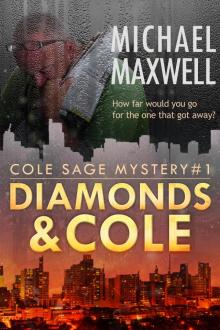 Diamonds and Cole: Cole Sage Mystery #1
Diamonds and Cole: Cole Sage Mystery #1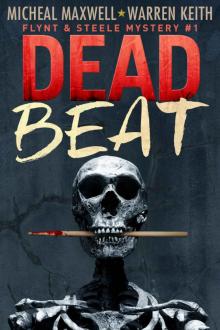 Dead Beat
Dead Beat![[Cole Sage 03.0] Helix of Cole Read online](http://i1.bookreadfree.com/28/cole_sage_03_0_helix_of_cole_preview.jpg) [Cole Sage 03.0] Helix of Cole
[Cole Sage 03.0] Helix of Cole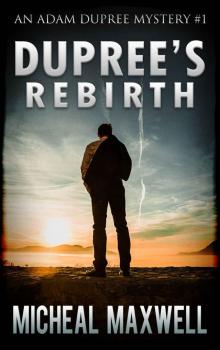 Dupree's Rebirth
Dupree's Rebirth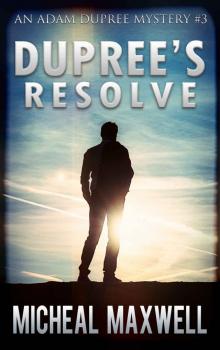 Dupree's Resolve
Dupree's Resolve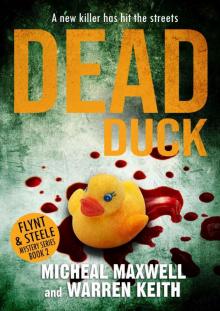 Dead Duck
Dead Duck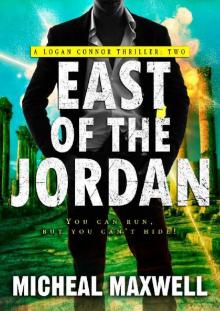 East of the Jordan (A Logan Connor Thriller Book 2)
East of the Jordan (A Logan Connor Thriller Book 2)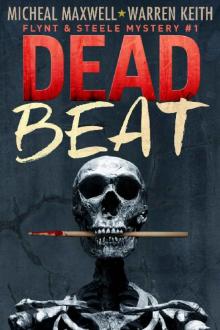 Dead Beat (Flynt and Steele Mystery Book 1)
Dead Beat (Flynt and Steele Mystery Book 1)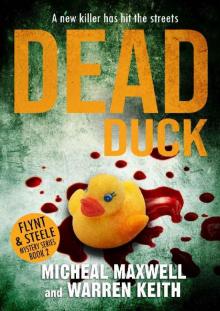 Dead Duck (Flynt & Steele Mysteries Book 2)
Dead Duck (Flynt & Steele Mysteries Book 2)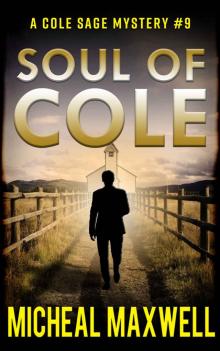 Soul of Cole
Soul of Cole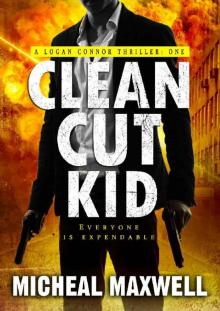 Clean Cut Kid (A Logan Connor Thriller Book 1)
Clean Cut Kid (A Logan Connor Thriller Book 1)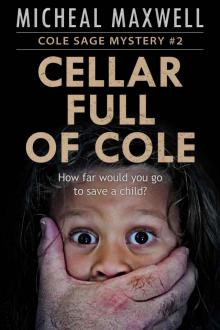 Cellar Full of Cole: A Cole Sage Mystery #2
Cellar Full of Cole: A Cole Sage Mystery #2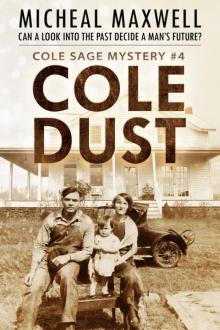 Cole Dust Cole
Cole Dust Cole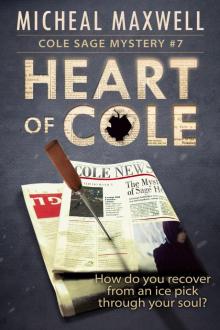 Heart of Cole
Heart of Cole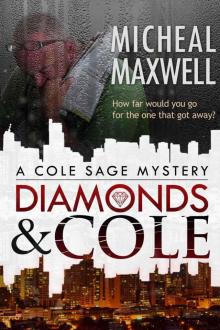 Diamonds and Cole: A Cole Sage Mystery
Diamonds and Cole: A Cole Sage Mystery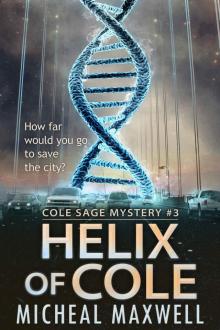 Helix of Cole
Helix of Cole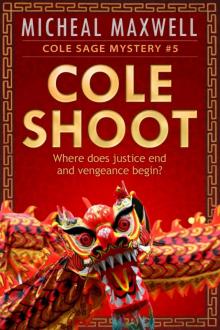 Cole Shoot
Cole Shoot